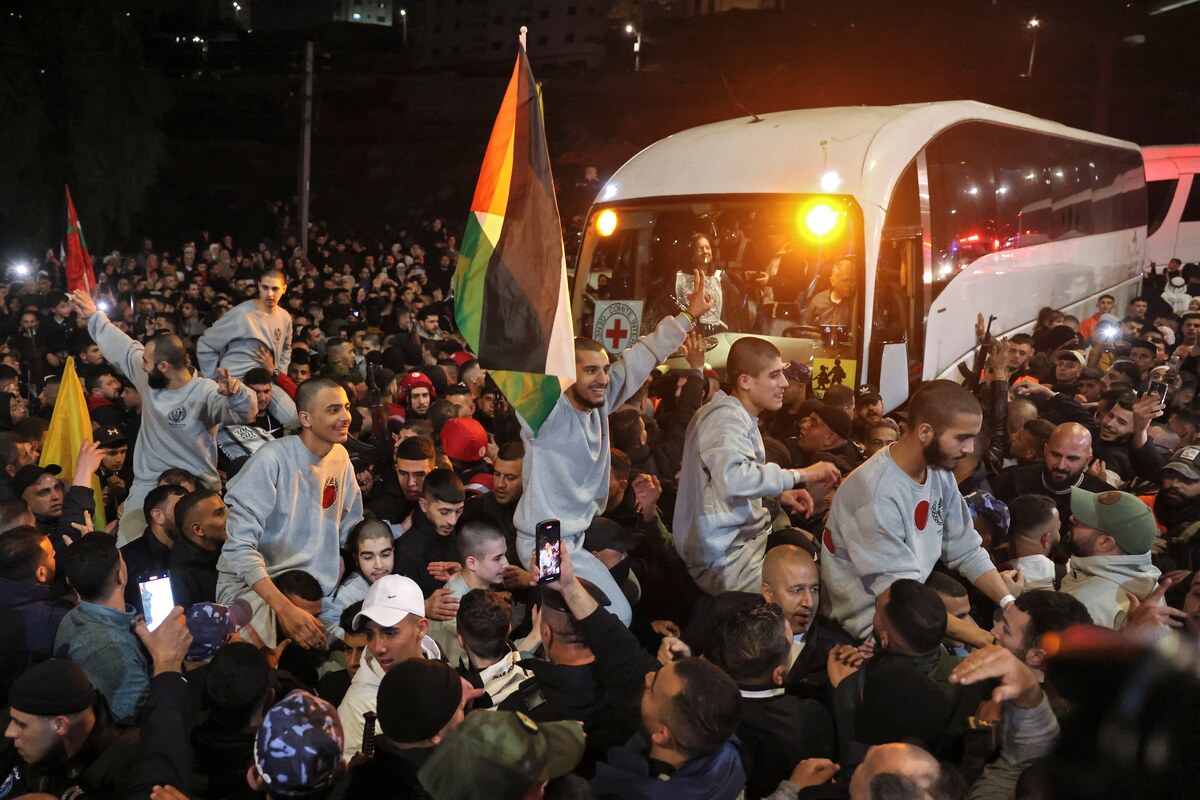Israeli forces carried out new deadly bombings targeting Hamas in Gaza on Wednesday, as international mediators prepared to propose a short-term truce to free hostages and avert a humanitarian catastrophe.
News of the potential breakthrough in truce talks came a day after an Israeli strike on a single Gaza residential block killed nearly 100 people and triggered international revulsion.
US, Qatari and Egyptian mediators have for months been trying to negotiate a truce between Israel and Hamas in Gaza to allow a prisoner swap, humanitarian access and talks on a longer-term peace.
Israel’s Mossad spy chief David Barnea, CIA director Bill Burns and Qatari Prime Minister Mohammed bin Abdulrahman bin Jassim Al-Thani held their latest round of secretive talks on Sunday and Monday in Doha.
On Wednesday, a source close to the talks said on condition of anonymity that the senior officials discussed proposing to the parties a “short-term” truce of “less than a month.”
The proposal included the exchange of Israeli hostages for Palestinians held in Israeli prisons, and an increase in aid to Gaza, the source added.
“US officials believe that if a short-term deal can be reached, it could lead to a more permanent agreement,” the source said.
A strike Tuesday in the northern Gaza district of Beit Lahia collapsed a building and left at least 93 dead, including a large number of children, according to the territory’s civil defense agency.
The US State Department described the bombing was “a horrifying incident with a horrifying result” and a spokesman said Washington had asked Israel for an explanation.
The United Nations aid coordination agency UNOCHA said the strike was only one of at least seven mass casualty incidents over the past week in the Palestinian territory.
“Only two... out of 20 health service points and two hospitals, Kamal Adwan and Al Awda, remain functional, although partially, hampering the delivery of life-saving health services,” UNOCHA said.
“Across the Gaza Strip, October has seen very limited food distribution due to severe supply shortages,” it warned, adding that 1.7 million people, 80 percent of the population, did not receive rations.
Israel launched a renewed offensive to root out Palestinian fighters in northern Gaza in recent weeks, one year after the October 7, 2023 cross-border Hamas attack that left 1,206 Israelis dead.
Israel’s response has led to the deaths of 43,061 Palestinians in Gaza, most of them civilians, according to figures from the Hamas-run territory’s health ministry, which the United Nations considers reliable.
The violence continued on Wednesday.
The Israeli military said it had conducted a precision strike on Hamas and Islamic Jihad fighters “conducting terrorist activity” in Khan Yunis, the south of Gaza.
The Palestinian Red Crescent said three people, including a girl and a woman, were killed in a strike on a house in Khan Yunis and two more died when a tent was hit in Deir el-Balah.
Fighting also continued in Lebanon, where Israel has launched an air and ground campaign to destroy the Iran-backed Hezbollah militia, which has launched cross-border strikes and expressed solidarity with Hamas.
The Israeli military, which in recent days has hit targets in several southern Lebanese cities, issued a new evacuation call on Wednesday, warning Lebanese residents to flee the Baalbek region.
Military spokesman Avichay Adraee said in a social media post that included a map of the eastern Bekaa valley that the army would “act forcefully against Hezbollah interests within your city and villages.”
Meanwhile, a Lebanese security official said that an Israeli strike on a Hezbollah van carrying munitions near Beirut killed the driver.
An AFP correspondent saw a vehicle on fire and said the Kahhale road, which links Beirut to Damascus, had been blocked in both directions.
Israel targets key routes between Syria and Lebanon to disrupt Hezbollah’s supply lines for weapons and munitions from Iran.
Hezbollah said it launched a “squadron of attack drones” against an Israeli naval base new Haifa, and the Lebanese state news agency NNA said Israeli ground forces were assaulting the southern village of Khiam.
The NNA also said Israeli airstrikes had hit several villages in the south of the country.
The war has killed at least 1,754 people in Lebanon since September 23, according to an AFP tally of health ministry figures, though the real number is likely to be higher due to gaps in the data.
Mediators to propose Gaza truce amid deadly Israeli strikes
https://arab.news/rxxr5
Mediators to propose Gaza truce amid deadly Israeli strikes

- News of the potential breakthrough in truce talks came a day after a deadly Israeli strike
- Senior officials discussed proposing to the parties a ‘short-term’ truce of ‘less than a month’




























